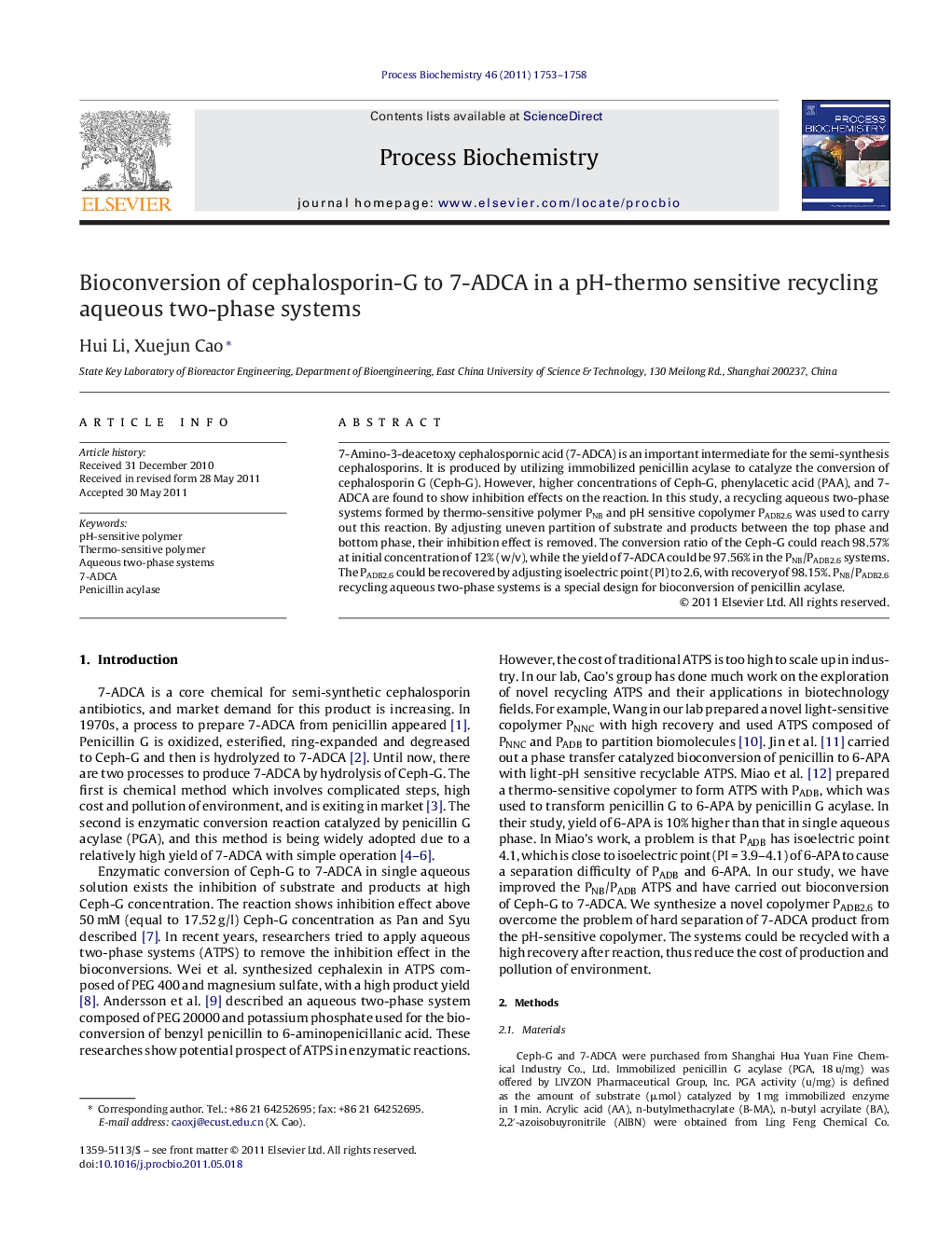| Article ID | Journal | Published Year | Pages | File Type |
|---|---|---|---|---|
| 10235477 | Process Biochemistry | 2011 | 6 Pages |
Abstract
7-Amino-3-deacetoxy cephalospornic acid (7-ADCA) is an important intermediate for the semi-synthesis cephalosporins. It is produced by utilizing immobilized penicillin acylase to catalyze the conversion of cephalosporin G (Ceph-G). However, higher concentrations of Ceph-G, phenylacetic acid (PAA), and 7-ADCA are found to show inhibition effects on the reaction. In this study, a recycling aqueous two-phase systems formed by thermo-sensitive polymer PNB and pH sensitive copolymer PADB2.6 was used to carry out this reaction. By adjusting uneven partition of substrate and products between the top phase and bottom phase, their inhibition effect is removed. The conversion ratio of the Ceph-G could reach 98.57% at initial concentration of 12% (w/v), while the yield of 7-ADCA could be 97.56% in the PNB/PADB2.6 systems. The PADB2.6 could be recovered by adjusting isoelectric point (PI) to 2.6, with recovery of 98.15%. PNB/PADB2.6 recycling aqueous two-phase systems is a special design for bioconversion of penicillin acylase.
Keywords
Related Topics
Physical Sciences and Engineering
Chemical Engineering
Bioengineering
Authors
Hui Li, Xuejun Cao,
